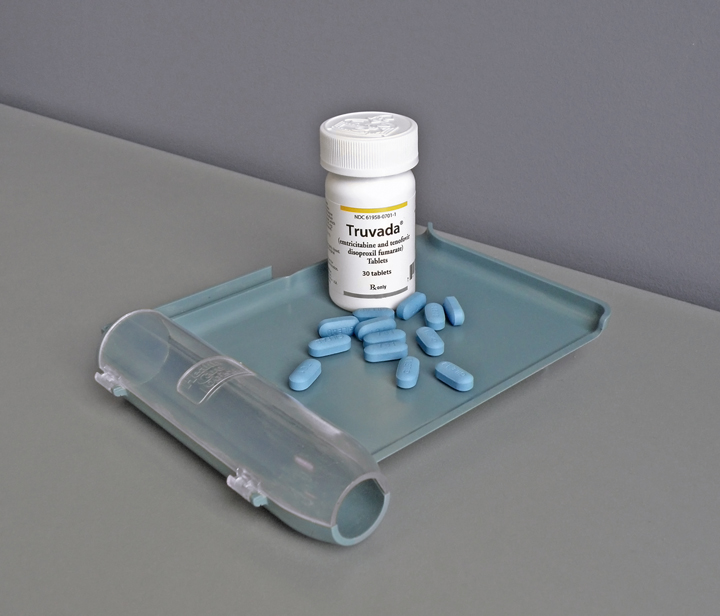First study to identify an association between PrEP use and receipt of primary care, with potential benefits beyond HIV prevention
Users of HIV pre-exposure prophylaxis (PrEP), a daily pill to prevent HIV infection, are more likely to use non-HIV-related primary care services, according to a new study led by researchers from Harvard Pilgrim Health Care Institute, Harvard Medical School, The Fenway Institute, and the Centers for Disease Control and Prevention.
The new study, which was published in the American Journal of Public Health, examined a group of nearly 6000 potential PrEP candidates at Fenway Health, a Boston, Massachusetts community health clinic. The investigators found that PrEP users were more likely to receive influenza vaccination, more likely to be screened for tobacco use and depression, and more likely to receive glucose testing, which is used for diabetes screening and monitoring.
Daily oral PrEP, using a combination of the antiretroviral medications emtricitabine and tenofovir (Truvada), is highly effective in preventing HIV infection. PrEP could provide a gateway to other types of health care for people at risk of HIV infection, just as family planning clinics provide a gateway to care for many women. However, prior studies have not evaluated whether PrEP use is associated with receiving routinely recommended primary care.
“To our knowledge, this is the first study to identify an association between PrEP use and receipt of primary care,” said lead author Julia L. Marcus, PhD, MPH, Assistant Professor of Population Medicine at Harvard Medical School and Harvard Pilgrim Health Care Institute, and Adjunct Faculty at The Fenway Institute. “Although this was a cross-sectional study, which limits our ability to draw conclusions about causation, our results suggest that the benefits of PrEP may extend to behavioral health, mental health, and the prevention and treatment of other infectious and chronic diseases.”
Most PrEP users in the U.S. are gay and bisexual men, a population that experiences a higher risk of mental health conditions, substance use, and smoking. For this reason, PrEP users stand to benefit from the increased opportunities for non-HIV-related screening and treatment that are provided by the PrEP care package.
“Our study suggests that PrEP users may be motivated to care for their health in other ways,” said senior author Kenneth H. Mayer, MD, of The Fenway Institute and Harvard Medical School. “This increased engagement in health care may be a reason for PrEP initiation or may actually result from the experience of using PrEP.”
The study authors suggest that, in addition to efforts to integrate PrEP prescribing into primary care, efforts may be warranted to ensure uptake of recommended primary care among PrEP users.
The paper, “HIV Preexposure Prophylaxis as a Gateway to Primary Care,” was published July 19 in American Journal of Public Health (AJPH).
About Harvard Pilgrim Health Care Institute’s Department of Population Medicine
The Harvard Pilgrim Health Care Institute’s Department of Population Medicine is a unique collaboration between Harvard Pilgrim Health Care and Harvard Medical School. Created in 1992, it is the only appointing medical school department in the United States based in a health plan. The Institute focuses on improving health care delivery and population health through innovative research and teaching.
About Fenway Health and The Fenway Institute
Since 1971, Fenway Health has been working to make life healthier for the people in our neighborhood, the LGBT community, people living with HIV/AIDS, and the broader population. The Fenway Institute at Fenway Health is an interdisciplinary center for research, training, education, and policy development focusing on national and international health issues.


